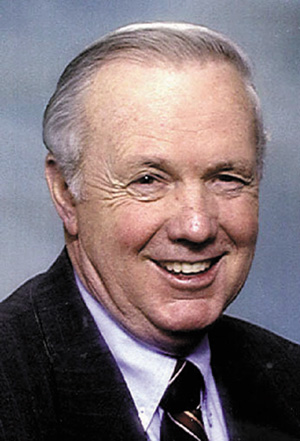No. 630 - DID YOU OVER-MARRY?
No. 630
Jim Davidson -- NEWSPAPER COLUMN
DID YOU OVER-MARRY?
Some time ago I heard this man say that he had been happily married for 35 years. He went on to say, “When you think about it, 35 out of 50 is a pretty good average.” Maybe his marriage started out like this couple I read about recently. The minister had reached that part of the marriage ceremony where he says to the bride, “Do you take this man to be your lawfully wedded husband, to love honor and obey?” The bride stood there staring straight ahead, expressionless, and did not answer. The minister thought that perhaps she had not been listening, so he repeated the question and this time said to her, “Did you hear the question?” “Yes” she said. “I heard you the first time, but I don’t want to get involved.”
While this is a humorous story, and I have no way of knowing where the ceremony went after her statement, I can tell you for sure that when we get legally married to another human being, we are involved whether we like it or not. A healthy, happy marriage should always be the goal, but this is certainly not the case in a day and time when more than 50 percent of marriages in our country end in divorce. One of the big problems in having a happy marriage is that, in many cases, we over-marry. We have all heard some man say, after being complimented, usually in the presence of his attractive wife, that he over-married. I have said that many times in the past, and in my case, it’s definitely true.
A few weeks ago in this column I told you about a fantastic book titled, “A Framework for Understanding Poverty” by Ruby K. Payne, Ph.D. After buying a couple of copies of this book and contacting her office about doing the column, to my surprise she sent me two of her other books complimentary. The one that really hit home, and the one I want to tell you about is titled, “Crossing the Tracks for Love,” with the subtitle, “What to do when you and your partner grew up in different worlds.” Before I get to the essence of the very helpful content, I would like to share just a word about my approach to sharing this kind of information.
First and foremost, I want to share information that I feel will be of interest and helpful to you, the reader, and also to a widely diverse group of others who take the time to read my column. If you should have a deeper interest in the theme or content, I want to supply an address, Web site or other information where you can find it. The book “Crossing the Tracks for Love” is a winner, and I wish I had run across it years ago. However, it was not written until 2005. Dr. Ruby Payne is uniquely qualified to author this book because of her own personal background. She was reared in a middle-class home, was later married to a man from extreme situational poverty and was also a school principal in one of the most affluent neighborhoods in Chicago, Illinois.
She has lived and experienced all three economic levels of our society: the wealthy, the middle-class and those who live in poverty. Here is something from the book that I certainly had never thought about before. Statistics indicate that 40 percent of our nation’s population shifts one economic class — up or down — within their lifetime. This is where you get to the hidden rules of class, really the heart and soul of this book. What happens in a marriage when one partner grew up living in a home with one set of hidden class rules and the other partner grew up living in a home with a different set of rules? I’m sure you see the picture.
If you were from a different class, could you cope with a spouse from poverty who: Repeatedly gave money to a relative who would not work. Loaned the family car to a relative who does not have insurance, and cannot be insured. Who didn’t think education was important. Who had family members who made fun of you for having a college degree? On the other hand, could you cope with a spouse who came from the middle class who: Spent long hours at the office. Who planned out one week in advance. Who shopped for high-quality clothing/shoes/accessories, then charged those items. Who often made a big issue over the quality of food.
Could you cope with a spouse who came from old money who: Insisted that our children be placed in private boarding schools at age 6. Who staffed and maintained homes in more than one country. Who valued you largely for your social connections.
Typically, people don’t think about hidden class rules by which they live. They simply live based on how they grew up. When you move from one class to another, up or down, and don’t know or understand the hidden rules of class, is when you have real problems. The book is “Crossing the Tracks for Love.” www.ahaprocess.com, PO Box 727, Highlands, Texas, 77562, 1-800-424-9484. I highly recommend it.
---
(EDITOR'S NOTE: Jim Davidson is a public speaker and syndicated columnist. You may contact him at 2 Bentley Drive, Conway, AR 72034. To support literacy, buy his book: “Learning, Earning & Giving Back.”)
